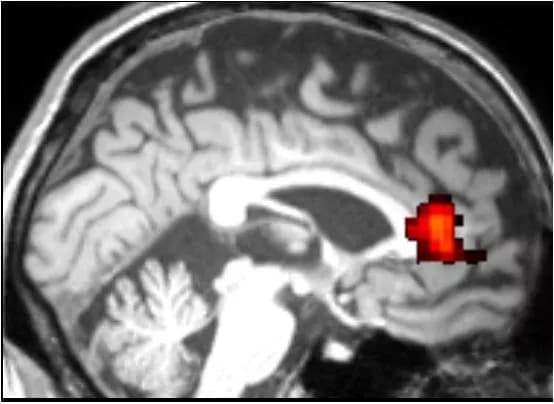
Brain Scan Reveals Cognitive Deficits In Older 'Cognitively Normal' HIV+ Individuals
Neuroscientists at Georgetown University Medical Center have found in a small study that although a group of HIV+ older individuals scored "cognitively normal" in standard neuropsychology testing, a scan of their brains tells a different story.
Published Nov. 17 in the journal AIDS Care, functional MRI (fMRI) scans, taken while participants were performing an alternating face-gender/word-semantic task, revealed that HIV+ individuals in the study showed deficits in cognitive functioning, compared to an age matched healthy controls.
Despite advances in treatment, HIV-associated neurocognitive disorder, or HAND, remains one of most common disorders in individuals with HIV infection. Previous studies have suggested about 30 to 60 percent of individuals with HIV-infection are affected, says neuroscientist Xiong Jiang, PhD, the lead author of the new study. This study suggests that cognitive impairments in HIV-infected 50 years or older individuals might be even more prevalent than previously proposed.
"This could be due to the fact that some standard neuropsychology tests might be insensitive to HAND," says Jiang. The new study used an experimental design that has been validated to study cognitive control (the ability to guide thought and action in accordance with current goals in a given environment) in healthy younger adults.
During the scanning, the participants were cued (unpredictably) to judge the gender of the face (male versus female) or the meaning of the word (e.g., animate for "tiger" and inanimate for "table") on superimposed face-word images. A switch (after the cue) in task often leads to an increase in reaction time and a decrease in accuracy (known as switching cost).
The HIV+ group was significantly slower in adjusting to change in tasks, which correlates with brain dysfunctions in the dorsal anterior cingulate cortex (dACC), one of the key executive regions. This collar-shaped area is near the front of the brain, and damage to this region has been linked to many cognitive impairments, including executive deficits and apathy.
"Intriguingly, both impairments are highly prevalent in individuals with HIV-infection, suggesting dACC might be one of commonly affected brain regions in HIV and a potential neural target for therapies," says Jiang.
"These findings, although preliminary, could have a significant implication for public health," says Jiang, "While there is no proven treatment that can effectively treat HAND other than control HIV replication, it is important for caregivers, families and the individuals themselves to know if they are affected."
Jiang says he will now study HAND in a larger population -- research supported by a $2 million grant from the National Institute of Mental Health (1R01MH108466-01) to further develop his fMRI-based biomarkers with the potential to guide and evaluate early and targeted therapies.
Related Articles
Test Your Knowledge
Asked by users
Related Centers
Related Specialties
Related Physicians
Related Procedures
Related Resources
Join DoveHubs
and connect with fellow professionals

0 Comments
Please log in to post a comment.